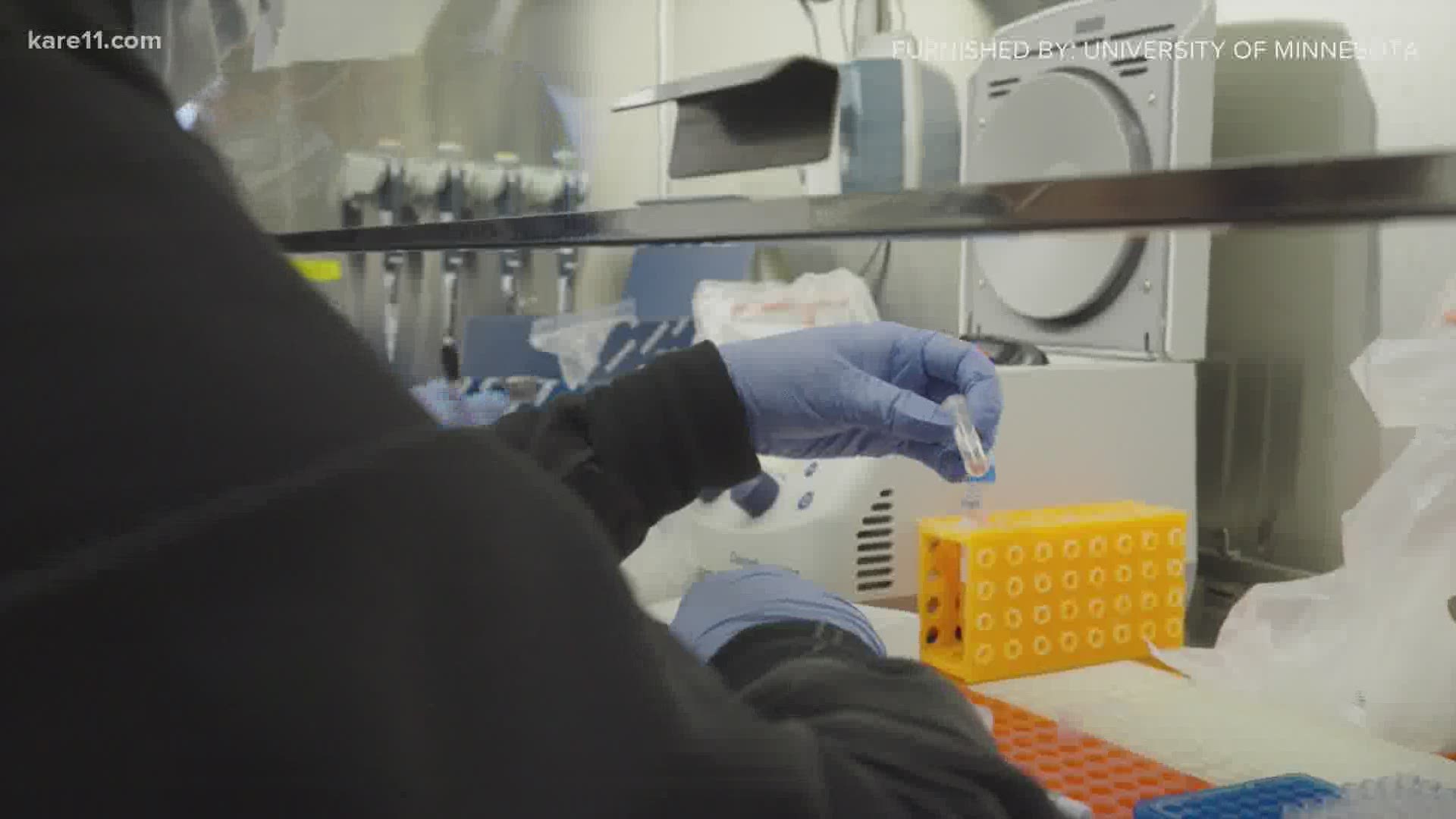MINNEAPOLIS — University of Minnesota researchers are working on a new type of antibody test, which could determine whether a person has immunity to the virus which causes COVID-19.
"This test is designed to not only see if you have antibodies [to the virus], but would you likely have protective immunity," said Dr. Marc Jenkins, Director of the Center for Immunology at the University of Minnesota Medical School.
Jenkins and his team were involved with developing an antibody test the University put out this spring. Jenkins says that test has found about four to five percent of Minnesotans have antibodies to SARS-CoV-2. However, he says the test can't determine whether those antibodies give them any sort of immunity to the virus.
"The test can't answer the question: Of the five percent that have antibodies, is it certain that they would have immunity, if they were infected a second time?" Jenkins said. "It can tell us if someone has antibodies, but we still don't know how much antibody actually provides immunity, and whether there are special kinds of antibodies that are important for immunity."
Jenkins describes the different antibodies using an analogy involving a lock and key. He says the proteins which protect the cells in a person's lungs are like a lock. The viral protein is a key, which can fit into that lock, unlock it, and infect a person with SARS-CoV-2.
The new antibody test would detect whether a person's antibodies are on the key's handle or on the part of the key which goes into the lock.
"Those would almost certainly obstruct the capacity of the key to slide into the lock. Now, the virus could not cause infection," said Jenkins. "The antibodies that bind to the part of the key that goes into the lock, we think of those as potentially being neutralizing antibodies, whereas, the antibodies that bind to the handle would not have that activity. People make mixtures of both kinds of antibodies and we think its more important to know about the neutralizing antibodies."
Jenkins floated another possibility - that the virus' antibodies don't follow a "lock and key" scenario at all. He says it is possible the virus is neutralized in a different way, which researchers don't understand yet.
Jenkins says they're in the process of validating the test and should know in about a month whether it works. At that point, they'll work with members of the clinical lab to put it into practice.
Jenkins said the new test, if it is validated, would be given to people who have already tested positive for antibodies. It would be a secondary test to determine their immunity.
"I think that would be valuable information for policy makers [and] for a lot of us who are out in the real world wondering, 'How safe is it for me to be out there?'"
KARE 11’s coverage of the coronavirus is rooted in Facts, not Fear. Visit kare11.com/coronavirus for comprehensive coverage, find out what you need to know about the Midwest specifically, learn more about the symptoms, and see what businesses are open as the state slowly lifts restrictions. Have a question? Text it to us at 763-797-7215. And get the latest coronavirus updates sent right to your inbox every morning. Subscribe to the KARE 11 Sunrise newsletter here. Help local families in need: www.kare11.com/give11.
The state of Minnesota has set up a data portal online at mn.gov/covid19.

